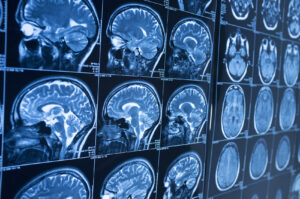
Concussions are the most common type of brain injury. A concussion is often thought of as minor, but a brain injury is never minor. Concussions can result in costly medical bills and lost wages. They can also have a significant impact on your quality of life, especially when symptoms linger or worsen.
If you or a loved one have recently experienced head trauma, it’s essential to know the signs of a concussion, how this type of injury is treated, and what to do if you need help obtaining compensation.
A Concussion Is a Brain Injury

There are three types of traumatic brain injuries: mild, moderate, and severe. “Concussion” is the informal term for a mild traumatic brain injury. The term “mild” can be misleading, as concussions often have a serious impact on the injured person.
A brain injury is typically diagnosed as mild when it involves no loss of consciousness or loss of consciousness lasting for less than 30 minutes. The expected outcome of a concussion is a full recovery within a few weeks.
As a type of traumatic brain injury, concussions require immediate medical treatment. Failing to see a doctor or carefully follow medical instructions often results in concussion symptoms worsening rather than improving.
What Are the Common Causes of Concussions?
Concussions occur because of head trauma. Most of the time, this involves the head coming into contact with an external object, such as the windshield of a car or a baseball bat. The resulting shock rattles the brain, throwing off regular brain functioning.
Since there are an endless number of ways in which a person could sustain head trauma, there’s no end to the types of situations that could result in a concussion. However, doctors and concussion injury lawyers frequently work with individuals who experience concussions due to the same events.
Some of these include:
- Car accidents
- Motorcycle accidents
- Slip and fall accidents
- Workplace accidents
- Sports accidents
- Physical assault
- Domestic violence
Falls, blows, and car accidents tend to be the leading sources of concussion injuries.
One mistake victims sometimes make is to think they couldn’t have suffered a concussion because their head did not make contact with an external object. However, it’s possible to sustain a concussion without any external trauma.
The force of a sudden stop, like in a car accident, can cause the brain to slam against the inside of the skull with such force that the outcome is a concussion. Anytime someone recently in an accident suspects concussion symptoms, they should immediately see a doctor, regardless of whether the head came into contact with anything.
What Are the Signs and Symptoms of a Concussion?
Concussion symptoms often appear immediately after the accident. However, they sometimes come on gradually or don’t begin until hours or even days after the accident. It’s smart to check for concussion symptoms immediately after any accident. However, it’s also essential to watch for them in the days following the accident.
Concussion symptoms primarily interfere with brain functioning. As the brain is impacted, the injured individual will likely experience physical symptoms, as well.
Cognitive signs of a concussion include:
- Confusion
- Disorientation
- Memory loss
- Brain fog
- Focus issues
- Problems thinking clearly
Common physical signs and symptoms of a concussion include:
- Dizziness
- Difficulty walking normally
- Blurred vision
- Slurred speech
- Nausea
- Vomiting
- Head pain
- Sensitivity to light and sound
The brain is highly complicated. A person with a concussion may experience all of these common symptoms, but they also might only experience a few. If behavior or cognitive symptoms appear altered or if lingering head pain is present, it’s best to see a doctor right away.
What Are the Potential Complications of a Concussion?
While a concussion should be taken seriously, the expected medical outcome in most cases is for the symptoms to resolve within a few days or weeks. However, concussions can have complications. These tend to fall into two main categories.
First, a concussion can be accompanied by a more serious head injury that is not immediately obvious. Bleeding inside the brain can occur alongside a concussion and can be fatal if it isn’t promptly diagnosed and treated.
The other likely type of concussion complication is worsening symptoms or symptoms that don’t abate in the expected recovery period. Often, symptoms that linger or worsen occur when a patient fails to follow medical instructions. The brain needs rest to properly heal from a concussion, and failing to rest and reduce stress can cause the injury to grow worse.
Even when medical care instructions are carefully followed, some concussion victims find that the symptoms do not abate. When a concussion results in lasting or long-term symptoms, there’s often little medical professionals can do. In cases like this, the victim may need to seek compensation to offset costs like lost wages due to the injury.
What Are Some Treatment Options For a Concussion Injury?
Any time an accident involves head trauma, it’s best to see a doctor immediately. Physicians check for concussion symptoms using a variety of tests that assess a patient’s response time, memory, and cognitive functioning.
If a doctor diagnoses a concussion, the recommended treatment is typically non-invasive. Primarily, a concussed brain needs rest.
Standard concussion treatment instructions involve:
- Rest
- Staying away from bright lights
- Staying away from loud noises
- Refraining from any screen use
- Refraining from reading or other eye-straining activities
- Taking time off work or school
- Refraining from exercise
Physical and mental rest is the standard approach for treating a concussion. When symptoms linger or worsen, a doctor might recommend imaging, such as an MRI, to see if there is any sign of a more serious brain injury.
Even when a concussion heals as expected, taking two to three weeks off work can have a significant effect on a family’s finances. When emergency room and MRI costs are added to this, the financial impact becomes even more pronounced.
When a concussion causes financial harm, a personal injury lawyer may be able to help the victim obtain compensation.
Consult an Experienced Concussion Injury Lawyer in Laredo, TX
A concussion might seem like a minor injury, but it can have a serious impact on the injured person’s finances. Even when a concussion heals promptly, it can result in weeks of lost wages. Medical bills can pile up quickly, especially when the injured person needs emergency room care and costly brain imaging.
When a concussion injury involves complications or lasting symptoms, it can have a long-term toll on quality of life and earning ability. If you or a loved one have suffered a concussion in Laredo, Texas, a personal injury lawyer may be able to help.
Roderick C. Lopez Personal Injury Lawyers has recovered millions for injured clients. Contact our firm today to schedule your free consultation with an experienced concussion injury attorney in Laredo; call us at (956) 529-7336.

